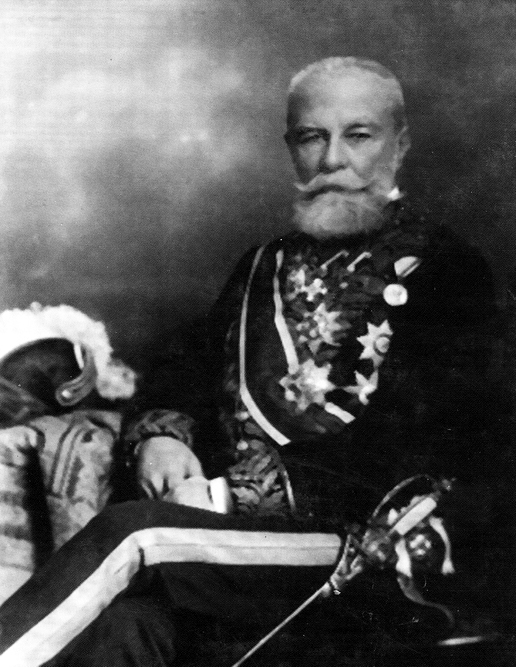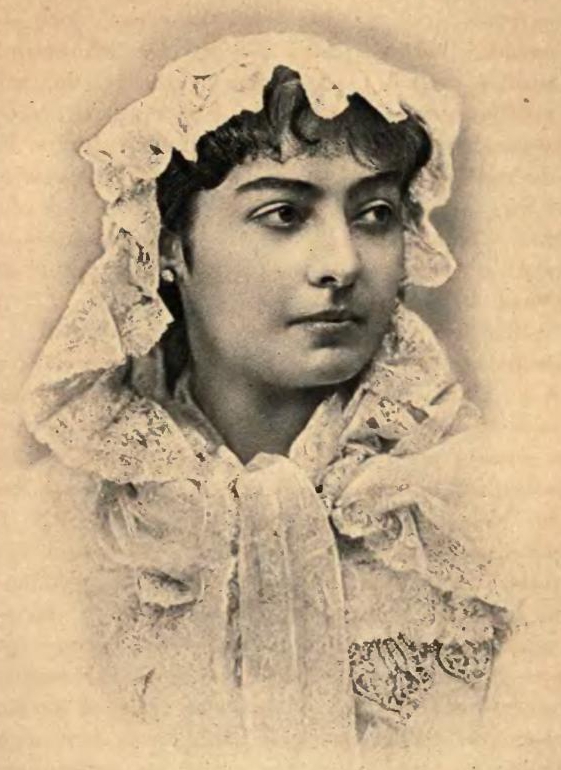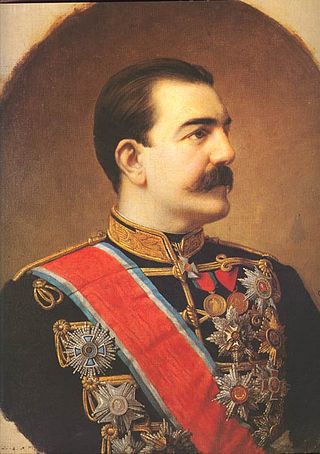OUR BLOG
DJORDJE SIMIC
SERBIAN DIPLOMATS
Djordje Simic was a Serbian politician, twice Prime Minister of the Kingdom of Serbia, and one of the founders of the Serbian Red Cross.

As the son of prominent constitutional defender Stojan Simic, Djordje Simic was born on February 28, 1843, in Belgrade. After graduating from the Belgrade Lyceum, he studied political science in Berlin, Heidelberg, and Paris, where he met Edouard Labouillet, the theoretician of French liberalism.
He joined the civil service in 1867, and in just three years he got the position of secretary in the Ministry of Foreign Affairs. However, Simic spent most of his professional life in the diplomatic service as a deputy in Sofia, Petrograd, Vienna, Constantinople, and Rome.
Diplomatic career
Simic was appointed consul general in Sofia in 1882, and he remained in that position until the break of diplomatic relations with Bulgaria two years later. At the suggestion of Jovan Ristic, he served as the head of the Ministry of Foreign Affairs, and at the end of 1887, he was appointed as a deputy to the imperial court in Russia. He participated in the work of the Constitutional Committee for the drafting of the Constitution of 1888, but as a deputy, he also faced the problem of Queen Natalija Obrenovic. The queen, who enjoyed a great reputation in Russia, lived outside of Serbia at the time and was forbidden to see her son Alexander in Belgrade. Because of this, she often wanted to break the ban and travel to Belgrade, and Simic had to dissuade her from traveling.
 Queen Natalija Obrenović
Queen Natalija Obrenović
During Simic’s mandate, an affair broke out over an ethnographic map in the newspaper Izvestija, which showed areas in Macedonia as part of the Bulgarian ethnic group. He managed to fight for a partial revision of the map, on which Macedonia is marked as the territory where the Macedonian Slavs live.
He served as a deputy in Vienna twice, from 1890 to 1894 and from 1906 to 1912.
Immediately after taking office, the government asked Simic to do everything to lift the Austrian ban on livestock imports from Serbia. He prepared the negotiations for the conclusion of the Trade Agreement with Austria, defending the interests of Serbia against objections from Vienna that Serbia was providing refuge to Bulgarian emigrants, who opposed the Bulgarian government.
Internal politics
Simic was Prime Minister on two occasions. For the first time, he was Prime Minister for only 3 months in 1894. It was a neutral government, whose task was to defend the dynasty and calm party passions. However, such a government did not suit the radicals as the parliamentary majority, so it came to a crisis and soon fell due to the conflict of kings Alexander and Milan with the radicals. For the second time, Simic was Prime Minister and Minister of Foreign Affairs from December 17, 1896, to October 11, 1897, and the government achieved notable results during his mandate. At the time of the Cretan Uprising on the eve of the Greco-Turkish War of 1897, Simic’s government negotiated with Turkey and offered neutrality, and in return received concessions on the Macedonian issue. Turkey allowed the opening of Serbian schools in the Bitola and Thessaloniki provinces, and a Serbian bishop was temporarily appointed in Skopje. In internal politics, Simic’s government aimed to calm political passions, improve the financial situation and arm the army due to the Greco-Turkish war.
Later activity
Djordje Simic was a member of the State Council on several occasions and retired several times due to his relationship with King Milan. After the Ivanjdan assassination of the king, Milovan Milovanovic was accused and sentenced in absence to two years in prison. Djordje Simic was also mentioned in that indictment. Simic’s letters to Sava Grujic were also used as evidence at the trials, but the investigation against Simic was suspended. After the wedding of Aleksandar Obrenovic, Simic was again appointed a member of the State Council in 1900, in the same year a deputy in Rome, and later became a senator and president of the State Council as well as a Serbian deputy in Vienna.
 King Milan Obrenovic
King Milan Obrenovic
During the First Serbian-Turkish War in 1876, Slavophile circles paid money and sent aid and equipment for hospitals through the Red Cross. Djordje Simic was one of the founders of the Red Cross and its president for many years.
Private life
It is recorded that Simic was a man of refined manners and one of the most respected and educated diplomats of the Kingdom of Serbia. According to political principles, he was a true European liberal, and in foreign policy, a Russophile. He left behind an extensive manuscript legacy. In his rich library, many historically significant documents were stored, which were looted during the First World War.
He married four times. The first wife was Jelena Karadjordjevic, the daughter of Prince Aleksandar Karadjordjevic, which caused suspicion in the Obrenovic court. Jelena died suddenly during a wedding trip to Lake Como in Italy. The second wife, Julka, died during the birth of their third child, and the third wife was the widow Jelka Bojovic. After her death, Simic married a 23-year-old woman from Vienna, Leopoldina Koumal, with whom he had a fourth child, a son, Georg Koumal Simic.







 2018
2018